Find Help
More Items From Ergsy search
-
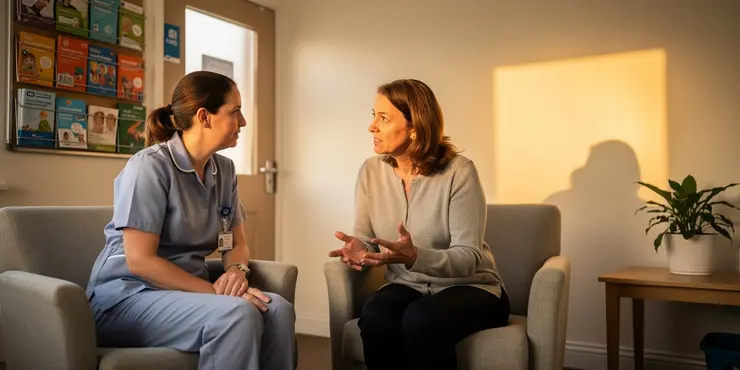
Mental Health Support Resources in the UK
Relevance: 100%
-
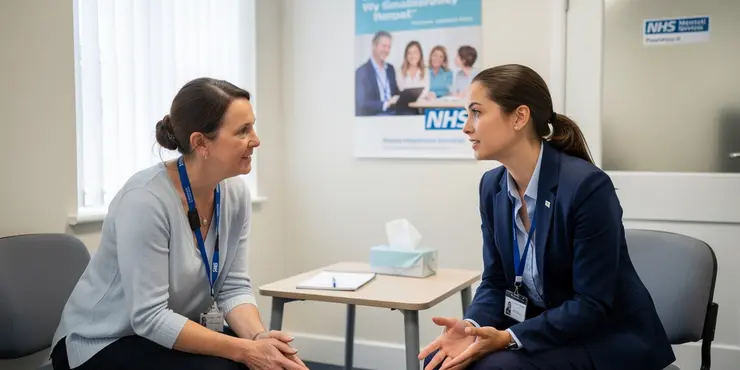
Mental Health Support Services in the UK
Relevance: 100%
-
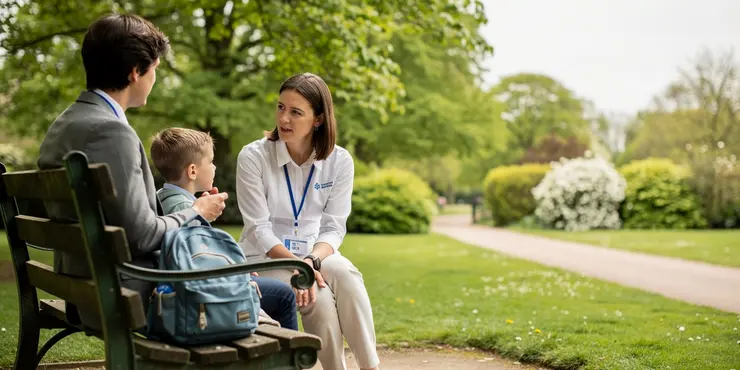
Understanding Mental Health in Children
Relevance: 100%
-
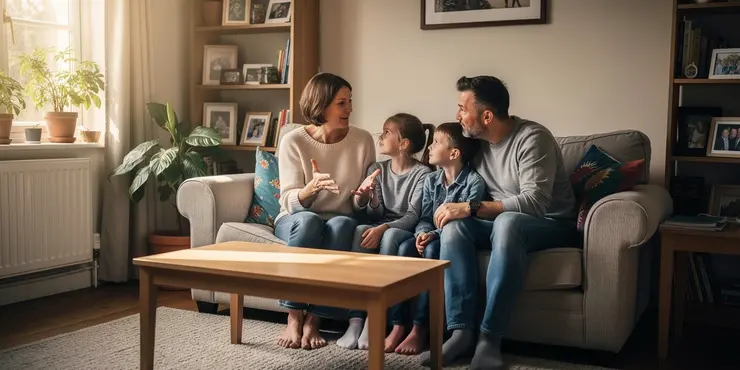
Mental Health Resources for Families
Relevance: 100%
-

Accessing Mental Health Support Resources in the UK
Relevance: 95%
-
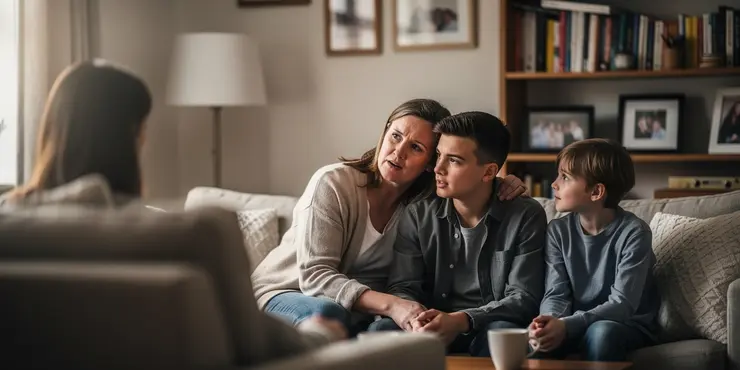
Advancements in Mental Health Resources for Families
Relevance: 95%
-
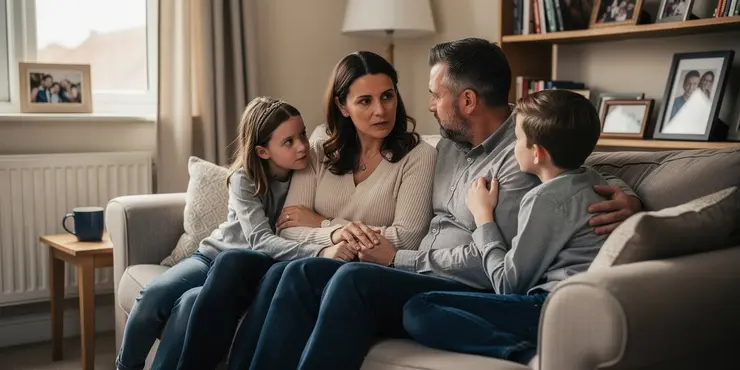
Mental Health Support Resources for Families
Relevance: 94%
-
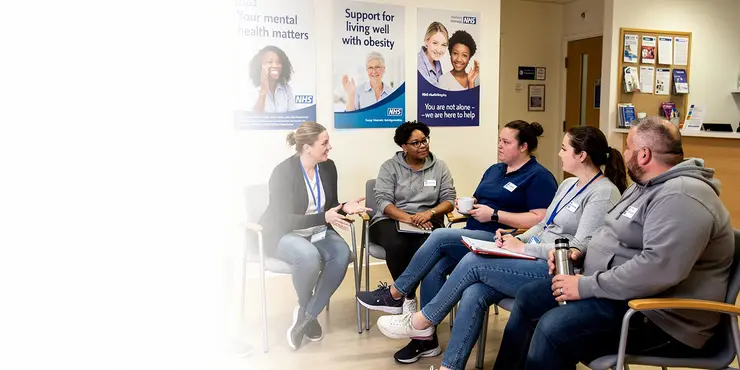
What is the impact of obesity on mental health?
Relevance: 94%
-
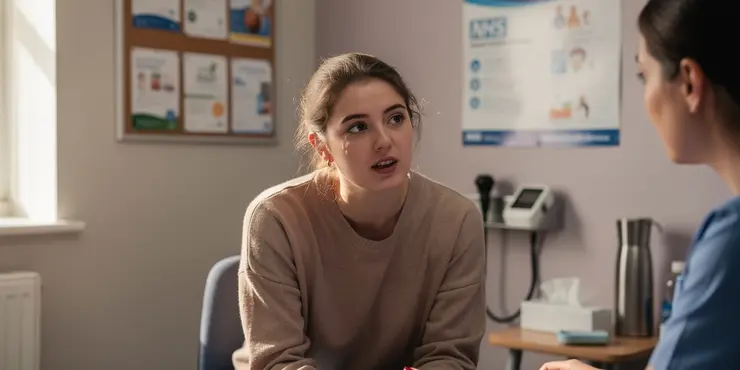
Mental Health: Laura's Story | NHS
Relevance: 94%
-
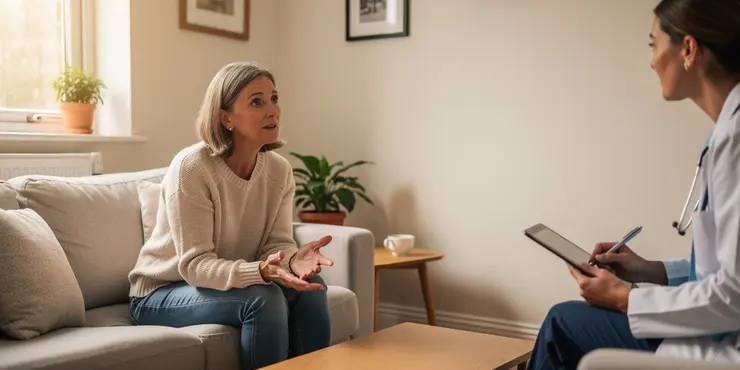
Can gut health affect mental health as one ages?
Relevance: 92%
-
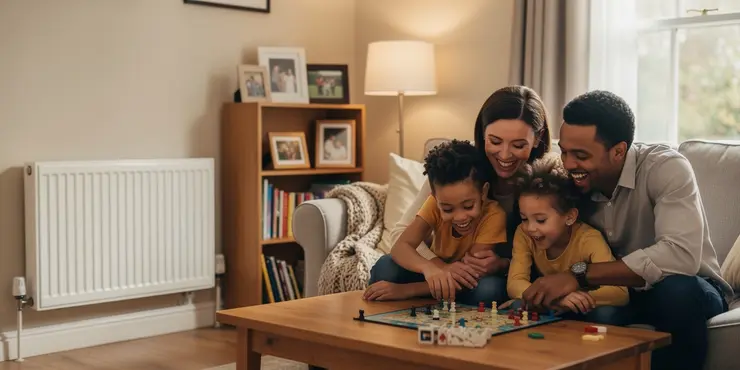
Mental Health Support for Families: Resources and Strategies
Relevance: 90%
-
Mental Health Support for Families: Resources and Guidance
Relevance: 90%
-
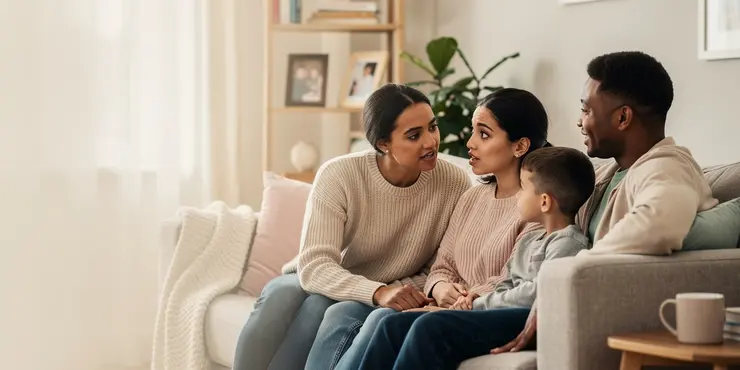
Mental Health Support for Families: Resources and Helplines
Relevance: 90%
-
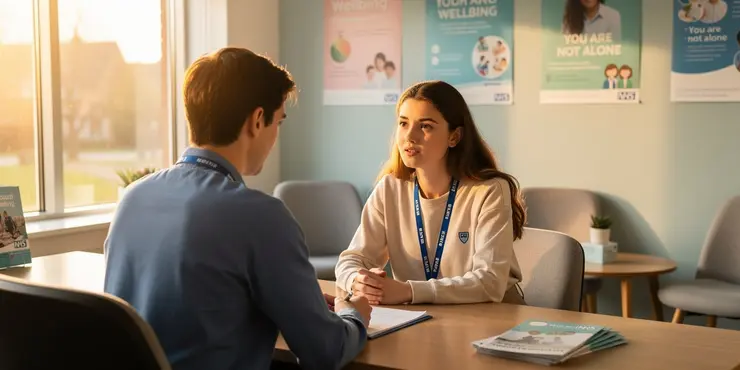
Current Challenges in Youth Mental Health Services
Relevance: 90%
-
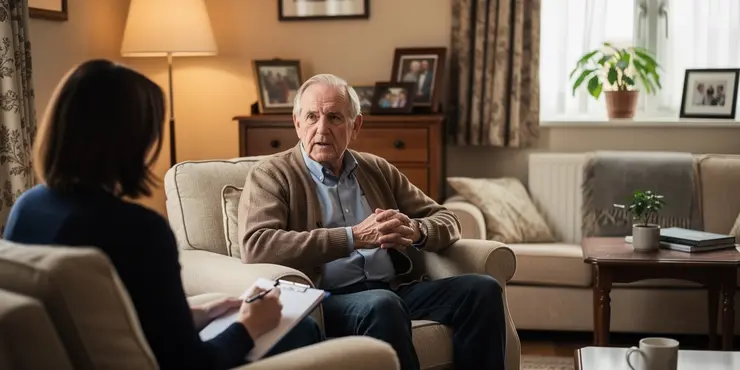
What mental health resources are available for seniors?
Relevance: 90%
-
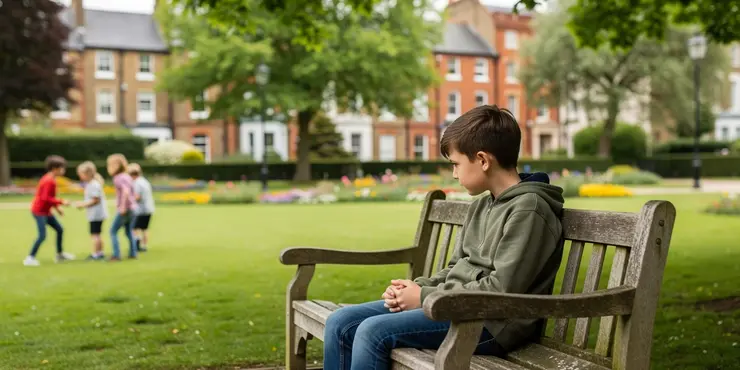
Navigating Mental Health Services for Children and Adolescents
Relevance: 90%
-
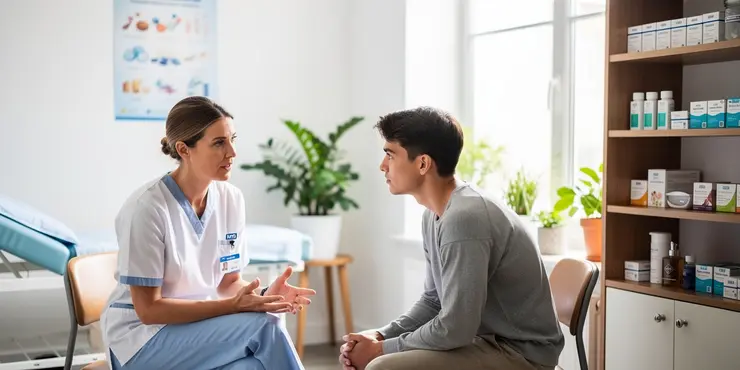
Can concussions lead to mental health issues?
Relevance: 90%
-
How does sugar impact mental health?
Relevance: 90%
-
Can mixed exercises improve mental health?
Relevance: 88%
-
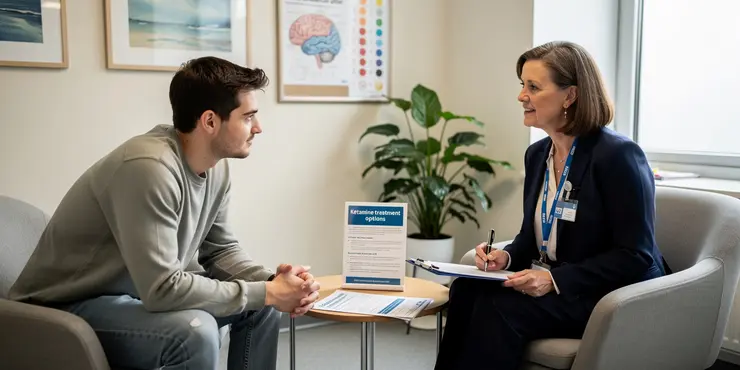
Can ketamine be prescribed for mental health conditions?
Relevance: 87%
-
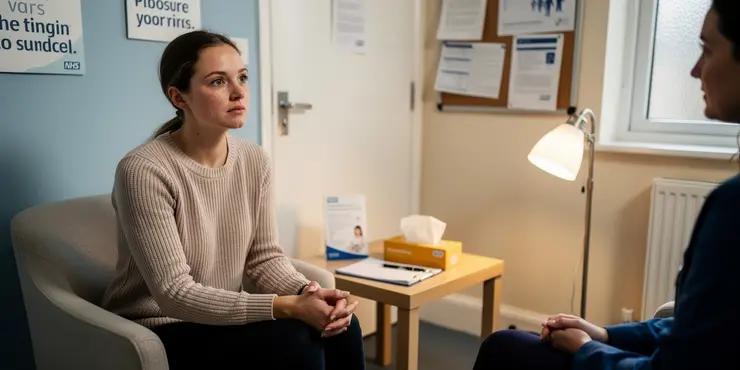
How do eating disorders affect mental health?
Relevance: 87%
-
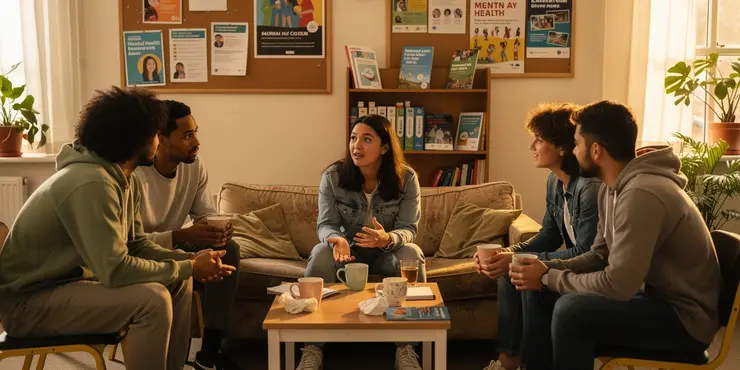
Tackling Youth Mental Health: Community Initiatives and Solutions
Relevance: 87%
-
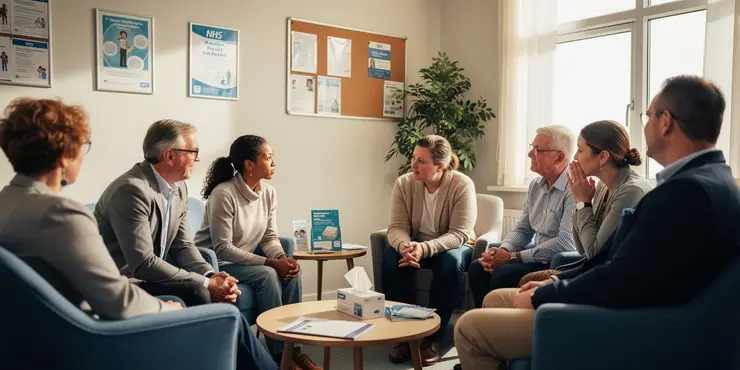
Support Services for Mental Health Amid Economic Uncertainty
Relevance: 87%
-
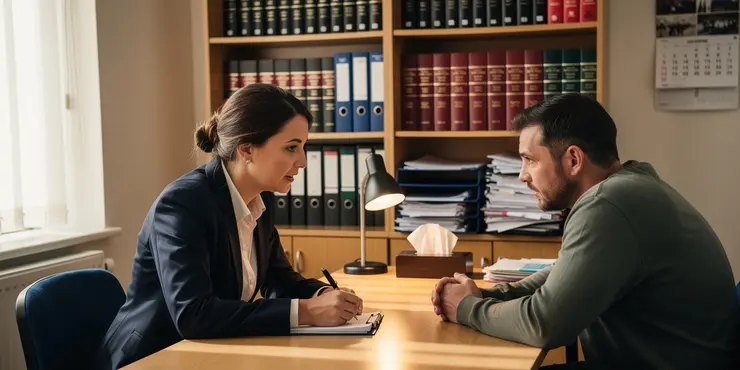
What is the role of mental health assessments in indefinite sentences?
Relevance: 86%
-
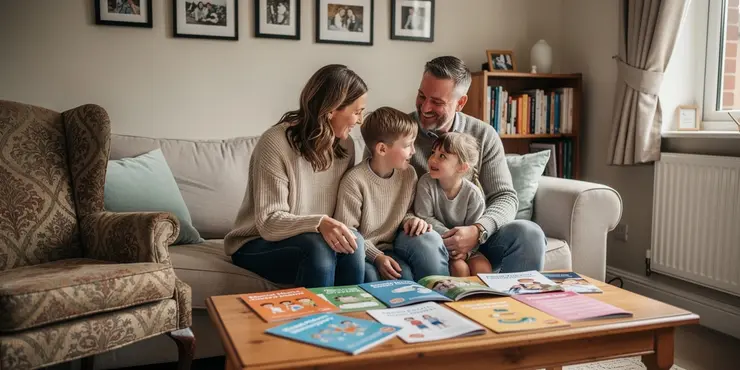
Mental Health Support for Families - Latest Resources and Guidance
Relevance: 86%
-
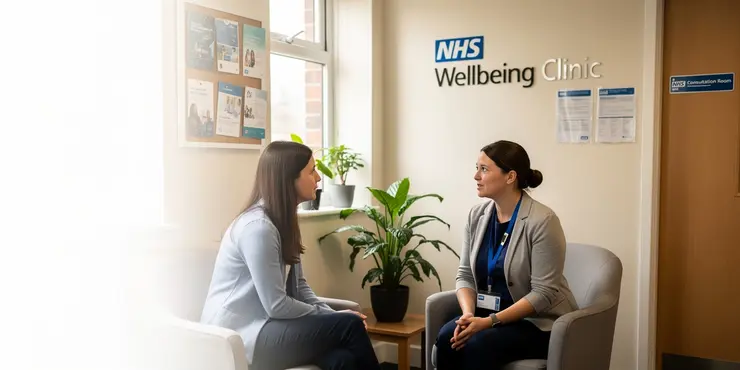
NHS Unveils Revolutionary Mental Health Support Initiative
Relevance: 86%
-
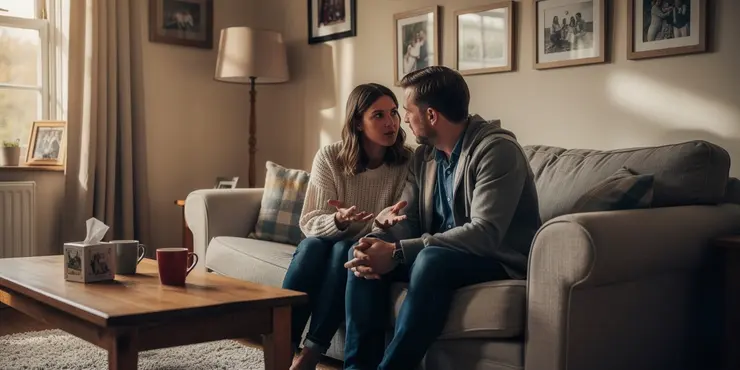
Can relationship problems be resolved to improve mental health?
Relevance: 85%
-
How does binge drinking affect mental health?
Relevance: 85%
-

How does the loneliness epidemic impact mental health?
Relevance: 83%
-
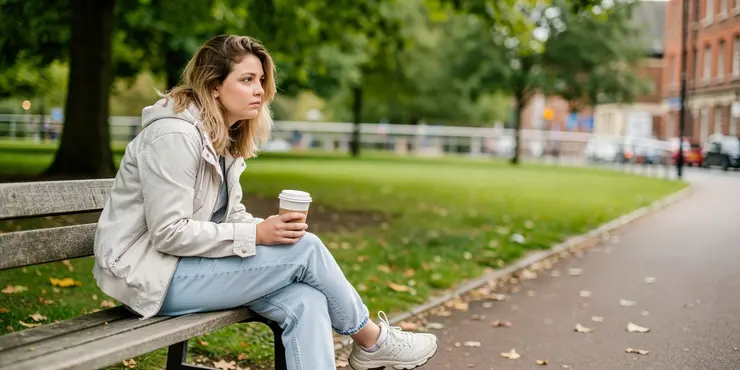
Short Films About Mental Health - Trauma PTSD
Relevance: 83%
-
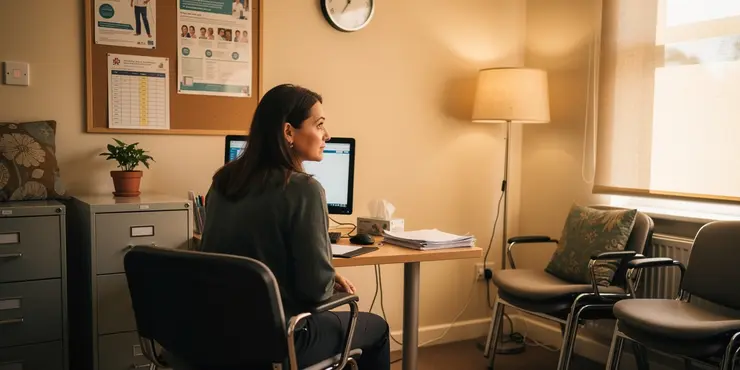
Mental Health Services Struggle to Cope Amid Record Demand
Relevance: 83%
-
Can cortisol levels impact mood and mental health?
Relevance: 83%
-

How does walking to work impact mental health?
Relevance: 82%
-
Can eating disorders occur with other mental health conditions?
Relevance: 82%
-

Mental Health Impact of Cost of Living Crisis and Support Resources
Relevance: 81%
-
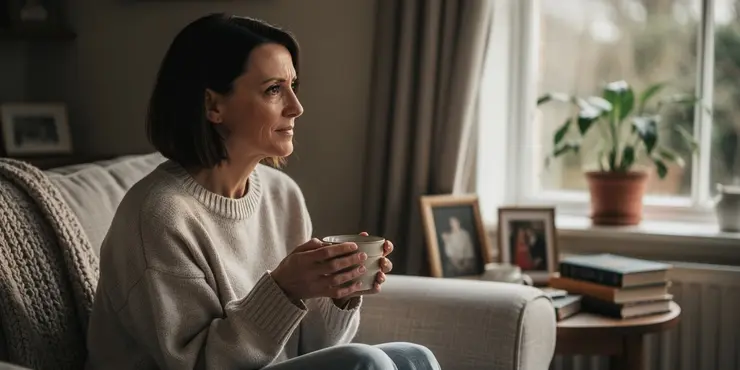
Can ending a toxic relationship improve my mental health?
Relevance: 81%
-
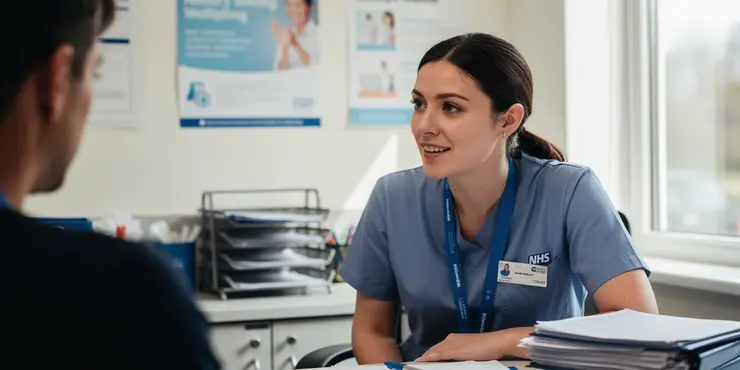
Can primary care support workers access mental health support?
Relevance: 80%
-
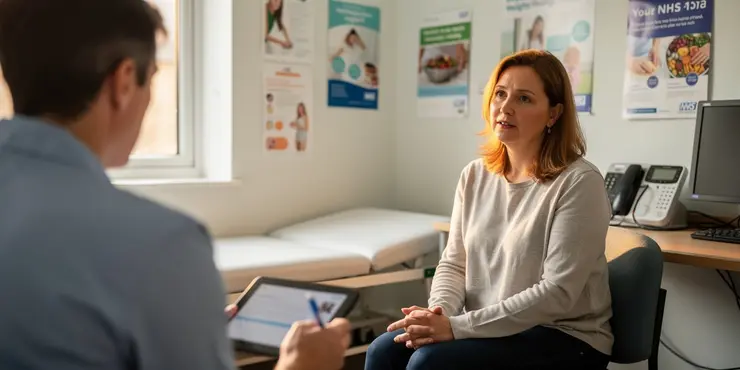
What impact can weight loss drugs have on mental health?
Relevance: 80%
-
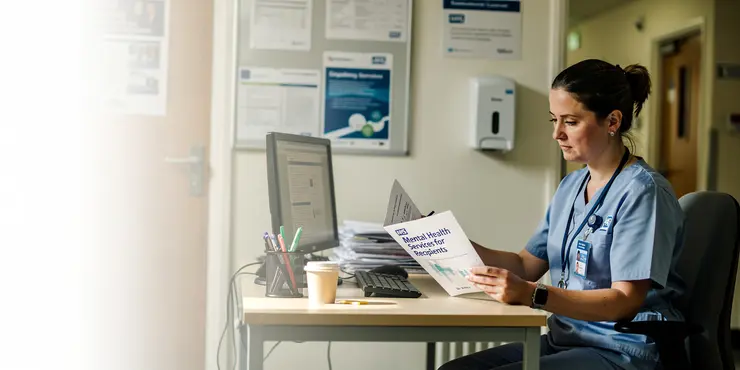
New Report Highlights Gaps in Mental Health Services for Welfare Recipients
Relevance: 80%
-

New Mental Health Strategy Launched to Address Youth Anxiety Epidemic
Relevance: 79%
Mental Health: Laura's Story | NHS
Introduction
Laura's story is a powerful testimony to the importance of mental health awareness and access to care. As a resident of the United Kingdom, Laura's experience highlights the critical role that organizations such as the NHS play in providing support and treatment to those struggling with mental health issues. This story is not just about Laura, but about the countless individuals who find themselves in similar situations and the available resources for them.
Early Signs and Struggles
Laura began experiencing symptoms of anxiety and depression in her late teens. She often felt overwhelmed, struggled with low self-esteem, and found it challenging to keep up with her daily responsibilities. Despite her best efforts, Laura's mental health continued to deteriorate, affecting her relationships and overall quality of life. Many individuals in the UK face similar early struggles, often not realising their mental health needs support.
Seeking Help
Recognizing the need for professional help, Laura reached out to her GP. She was referred to a mental health specialist through the NHS. The process of seeking help was daunting but essential. The NHS provides a range of mental health services, including counseling, medication, and support groups. Laura’s decision to seek help was a turning point in her mental health journey.
Treatment and Support
With a tailored treatment plan, Laura began attending regular therapy sessions and was prescribed medication to help manage her symptoms. The NHS also offered her access to various support groups and resources to help her understand and cope with her condition. Support from family and friends, combined with professional care, played a crucial role in her recovery.
Recovery and Beyond
Laura's journey towards better mental health was not without its challenges, but with the support and resources provided by the NHS, she gradually improved. Today, Laura is an advocate for mental health awareness, encouraging others to seek help and reminding them that recovery is possible. Her story serves as an inspiration and a reminder of the importance of accessible mental health care in the UK.
Conclusion
Laura's story is a testament to the positive impact that seeking help and accessing the right resources can have on mental health recovery. For anyone in the UK struggling with mental health issues, the NHS provides a valuable support system. Laura’s journey highlights the importance of recognizing early signs, seeking help, and embracing the resources available to lead a healthier, more fulfilling life.
Mental Health: Laura's Story | NHS
Introduction
This is Laura's story. It shows why mental health is important. Laura lives in the UK. Her story shows how the NHS helps people with mental health problems. This story is not only about Laura. It is about many people like her who need help.
Early Signs and Struggles
Laura started feeling anxious and sad when she was a teenager. She felt nervous and did not like herself. Doing daily tasks was hard for her. Laura's mental health got worse. It affected her life and relationships. Many people in the UK feel like this but do not know they need help.
Seeking Help
Laura knew she needed help. She talked to her doctor. Her doctor sent her to a mental health specialist. The NHS helps with mental health. They offer therapy, medicine, and support groups. Asking for help was an important step for Laura.
Treatment and Support
Laura got a special plan for her treatment. She went to therapy and took medicine. The NHS also helped her join support groups. Her family and friends supported her too. This was very important for her getting better.
Recovery and Beyond
Getting better was not easy for Laura. But with the NHS's help, she improved. Now, Laura helps others by talking about mental health. She tells people to ask for help. She shows that getting better is possible.
Conclusion
Laura's story shows how important it is to get help. The NHS can support people with mental health problems in the UK. Laura shows how noticing problems early and getting help can make life better.
Frequently Asked Questions
Who is Laura?
Laura is a young woman who has experienced mental health issues and shares her story to inspire and help others.
What kind of mental health issues has Laura faced?
Laura has faced anxiety and depression, which had a significant impact on her daily life and relationships.
How did Laura initially recognise her mental health problems?
Laura realised something was wrong when she started feeling overwhelming anxiety and sadness that affected her ability to function normally.
What steps did Laura take to address her mental health issues?
Laura sought help from a GP, who referred her to a specialist for therapy. She also received support from family and friends.
What types of therapy did Laura try?
Laura tried several types of therapy including Cognitive Behavioural Therapy (CBT), which helped her understand and change negative thought patterns.
How has Laura's mental health improved with therapy?
Therapy has helped Laura manage her symptoms better, leading to improved mood, reduced anxiety, and a better quality of life.
What role did medication play in Laura's treatment?
Laura was prescribed medication by her GP to help manage her anxiety and depression alongside her therapy sessions.
How important is support from family and friends according to Laura?
Laura believes that support from family and friends is crucial as it provides emotional backing and reassures individuals they are not alone.
What message does Laura want to convey to others struggling with mental health issues?
Laura wants others to know that it’s okay to ask for help and that treatment is available. She encourages people to speak out and not suffer in silence.
How can someone access mental health services in the UK?
Individuals can access mental health services by visiting their GP, who can provide a referral to specialists or community mental health teams.
Are there any online resources Laura found helpful?
Laura found online resources such as mental health websites and forums helpful for information and support.
What lifestyle changes did Laura make to help her mental health?
Laura incorporated regular exercise, a healthy diet, and mindfulness practices into her lifestyle to support her mental well-being.
How did Laura deal with the stigma around mental health?
Laura addressed stigma by openly talking about her experiences, hoping to educate others and reduce misconceptions about mental health.
What advice does Laura give for managing bad days?
Laura advises using coping strategies such as relaxation techniques, seeking support from loved ones, and reminding oneself that it's okay to have bad days.
What has Laura learned about self-care?
Laura has learned that self-care is vital for maintaining mental health, and it’s important to take time for oneself and engage in enjoyable activities.
Who is Laura?
Laura is a person. We want to know more about her.
If you find reading hard, ask someone to read it to you. You can also use a reading tool that speaks the words.
Laura is a young woman. She has had problems with mental health. She tells her story to help other people feel better and strong.
What mental health problems has Laura had?
Laura feels very worried and sad a lot. This makes it hard for her to do things every day and to be with her friends and family.
How did Laura first know about her mental health problems?
Laura figured out she had mental health problems when she noticed changes in how she felt and acted. She might have felt sad a lot, got angry easily, or found it hard to focus. It's important to talk to someone you trust if you feel this way too. You can also use tools like calm breathing apps or keep a diary of your feelings.
Laura knew something was wrong when she felt very worried and sad. These feelings made it hard for her to do normal things.
How did Laura help her mental health?
Laura went to see a doctor. The doctor sent her to a special helper for talking therapy. Her family and friends also helped her.
What kinds of therapy did Laura try?
Laura tried different types of help. One type was called Cognitive Behavioural Therapy (CBT). This helped her learn how to think in better ways and feel less upset.
How did therapy help Laura feel better?
Therapy has helped Laura feel better. She is less worried now, and her mood has improved. Laura has a happier life.
How did medicine help Laura get better?
Laura's doctor gave her medicine to help her feel less worried and sad. She also talks to someone who helps her with her feelings.
Why does Laura think family and friends are important?
Friends and family help us feel happy and loved. Laura might say they are important because they can help when things are hard.
Laura thinks it's really important to have help from family and friends. They can make you feel better and remind you that you are not by yourself.
What does Laura want to tell people who are having a hard time with their feelings?
Laura wants to help people who are sad or worried. She wants them to know they are not alone. She says it's okay to talk about how you feel. Talking can make you feel better.
If you feel upset or scared, you can try talking to someone you trust. This can be a parent, a teacher, or a friend.
There are also people like doctors or counselors who can help. You can call them or visit them.
Remember, lots of people care about you and want to help you feel happy again.
Laura wants you to know it's okay to ask for help. There is help you can get. She says you should talk to someone and not keep your problems a secret.
How can someone get help for their mental health in the UK?
If you feel sad, worried, or have other feelings that are hard to handle, you can get help. Here is how:
Talk to a Doctor: Visit your doctor and tell them how you feel. They can help you find the right support.
Call a Helpline: You can call a helpline to talk to someone who can help. They are kind and want to help you feel better.
Visit a Website: There are websites with lots of information to help you. You can find tips and advice there.
Join a Group: Sometimes it helps to talk to other people who feel the same way. You can join a support group.
Apps and Tools: There are apps you can use that have games and tips to help you feel better.
Remember, it's okay to ask for help. You are not alone, and there are people who want to help you feel better.
People can get help for their mental health by going to see their doctor. The doctor can then send them to see other special doctors or teams in the community who can help with mental health.
Did Laura find any helpful websites?
Laura found websites about mental health and online chat rooms helpful. They gave her good information and support.
What Changes Did Laura Make to Feel Better?
We want to know what things Laura did differently to feel happier and calmer. Here are some ways to help understand:
- Use short sentences.
- Look for words you know.
- Use pictures to help understand.
Think about what small things you can do every day to feel better, just like Laura did.
Laura does exercise, eats healthy food, and does mindfulness exercises. This helps her feel happy and calm.
How did Laura handle people's negative thoughts about mental health?
Laura found ways to manage how people talked and thought about mental health. Here are some ways she did it:
- Laura spoke to kind and understanding friends and family.
- She read books and watched videos about mental health to learn more.
- Laura joined support groups to meet others who understood her feelings.
- She practiced being kind to herself and spoke to a counselor.
These steps helped Laura feel better and handle what others thought about mental health.
Laura talked about her own life to help people understand mental health better. She wants people to know the true facts and not believe wrong ideas.
What tips does Laura give for dealing with tough days?
Laura says to try to stay calm, ask for help from friends or family, and remember that it's okay to have a bad day sometimes.
What did Laura learn about taking care of herself?
Laura found out how to take care of herself better. Here are some things she learned:
- Rest is important: Laura learned to get enough sleep and take breaks when tired.
- Healthy eating: She knows eating healthy food makes her feel good and strong.
- Exercise: Laura feels happy and full of energy when she moves her body.
- Talking to friends: She understands that sharing her feelings with friends helps a lot.
Here are some tips to help like Laura:
- Use a planner to remember when to rest and eat.
- Try puzzles or coloring books to relax and have fun.
- Ask an adult to help you with making a healthy meal.
Taking care of yourself is very important. It makes you strong and happy!
Laura has learned that taking care of herself is very important for feeling happy and healthy. She knows it's good to take time for herself and to do fun things she enjoys.
Here are some tools to help:
- Use a calendar to plan fun activities.
- Ask friends to join in the fun.
- Try deep breathing or listening to calm music.
Useful Links
This website offers general information and is not a substitute for professional advice.
Always seek guidance from qualified professionals.
If you have any medical concerns or need urgent help, contact a healthcare professional or emergency services immediately.
Some of this content was generated with AI assistance. We’ve done our best to keep it accurate, helpful, and human-friendly.
- Ergsy carfully checks the information in the videos we provide here.
- Videos shown by Youtube after a video has completed, have NOT been reviewed by ERGSY.
- To view, click the arrow in centre of video.
- Most of the videos you find here will have subtitles and/or closed captions available.
- You may need to turn these on, and choose your preferred language.
- Go to the video you'd like to watch.
- If closed captions (CC) are available, settings will be visible on the bottom right of the video player.
- To turn on Captions, click settings .
- To turn off Captions, click settings again.
More Items From Ergsy search
-

Mental Health Support Resources in the UK
Relevance: 100%
-

Mental Health Support Services in the UK
Relevance: 100%
-

Understanding Mental Health in Children
Relevance: 100%
-

Mental Health Resources for Families
Relevance: 100%
-

Accessing Mental Health Support Resources in the UK
Relevance: 95%
-

Advancements in Mental Health Resources for Families
Relevance: 95%
-

Mental Health Support Resources for Families
Relevance: 94%
-

What is the impact of obesity on mental health?
Relevance: 94%
-

Mental Health: Laura's Story | NHS
Relevance: 94%
-

Can gut health affect mental health as one ages?
Relevance: 92%
-

Mental Health Support for Families: Resources and Strategies
Relevance: 90%
-
Mental Health Support for Families: Resources and Guidance
Relevance: 90%
-

Mental Health Support for Families: Resources and Helplines
Relevance: 90%
-

Current Challenges in Youth Mental Health Services
Relevance: 90%
-

What mental health resources are available for seniors?
Relevance: 90%
-

Navigating Mental Health Services for Children and Adolescents
Relevance: 90%
-

Can concussions lead to mental health issues?
Relevance: 90%
-
How does sugar impact mental health?
Relevance: 90%
-
Can mixed exercises improve mental health?
Relevance: 88%
-

Can ketamine be prescribed for mental health conditions?
Relevance: 87%
-

How do eating disorders affect mental health?
Relevance: 87%
-

Tackling Youth Mental Health: Community Initiatives and Solutions
Relevance: 87%
-

Support Services for Mental Health Amid Economic Uncertainty
Relevance: 87%
-

What is the role of mental health assessments in indefinite sentences?
Relevance: 86%
-

Mental Health Support for Families - Latest Resources and Guidance
Relevance: 86%
-

NHS Unveils Revolutionary Mental Health Support Initiative
Relevance: 86%
-

Can relationship problems be resolved to improve mental health?
Relevance: 85%
-
How does binge drinking affect mental health?
Relevance: 85%
-

How does the loneliness epidemic impact mental health?
Relevance: 83%
-

Short Films About Mental Health - Trauma PTSD
Relevance: 83%
-

Mental Health Services Struggle to Cope Amid Record Demand
Relevance: 83%
-
Can cortisol levels impact mood and mental health?
Relevance: 83%
-

How does walking to work impact mental health?
Relevance: 82%
-
Can eating disorders occur with other mental health conditions?
Relevance: 82%
-

Mental Health Impact of Cost of Living Crisis and Support Resources
Relevance: 81%
-

Can ending a toxic relationship improve my mental health?
Relevance: 81%
-

Can primary care support workers access mental health support?
Relevance: 80%
-

What impact can weight loss drugs have on mental health?
Relevance: 80%
-

New Report Highlights Gaps in Mental Health Services for Welfare Recipients
Relevance: 80%
-

New Mental Health Strategy Launched to Address Youth Anxiety Epidemic
Relevance: 79%


